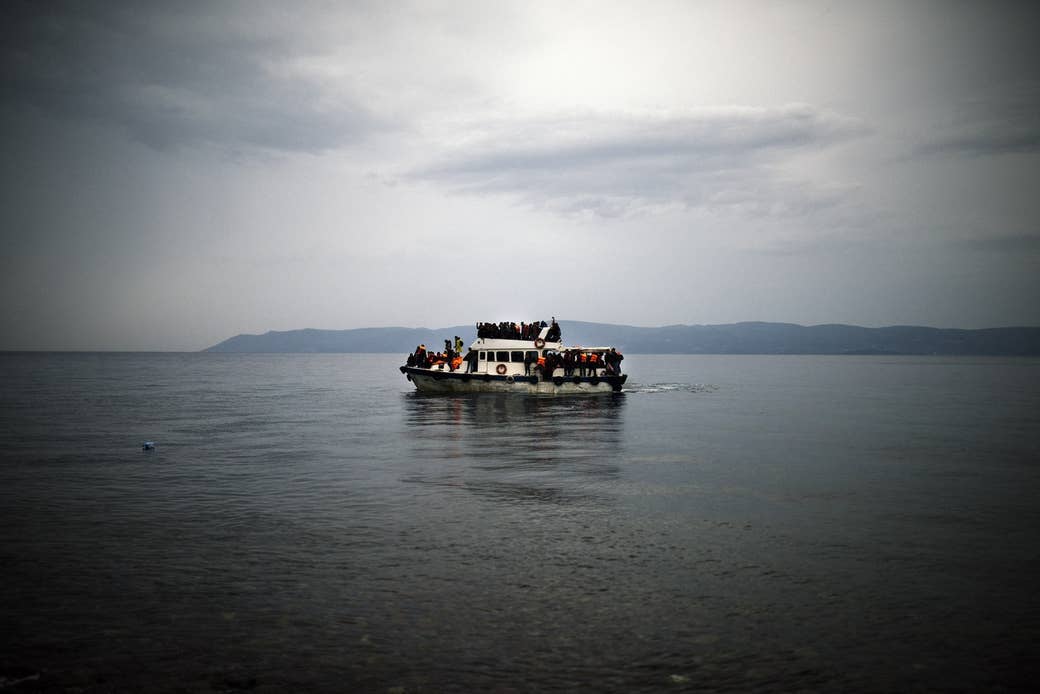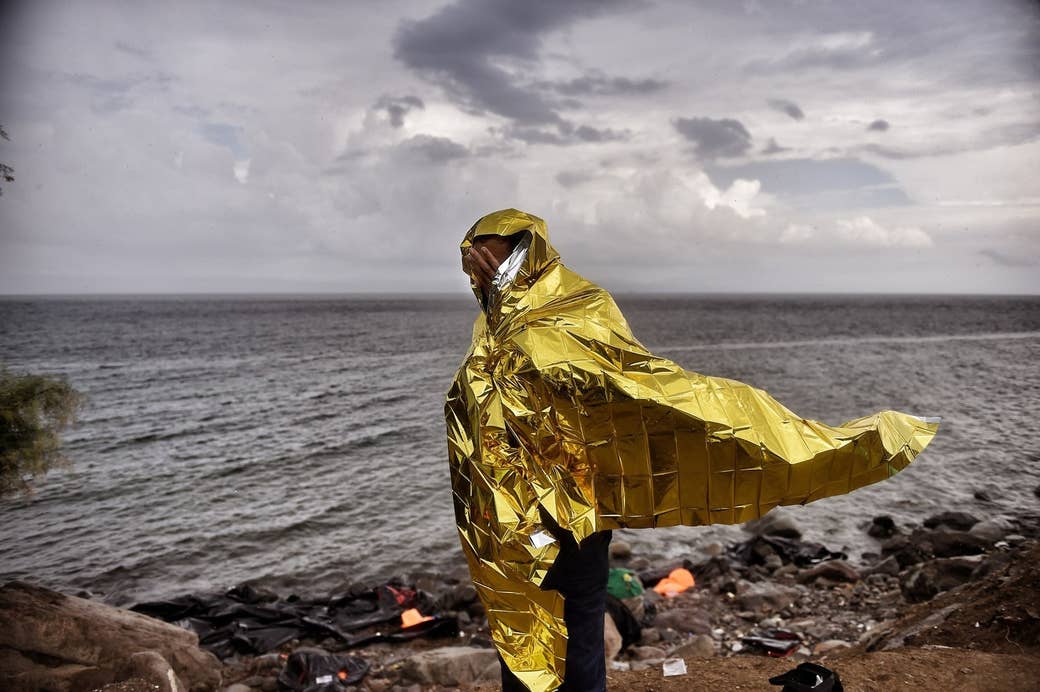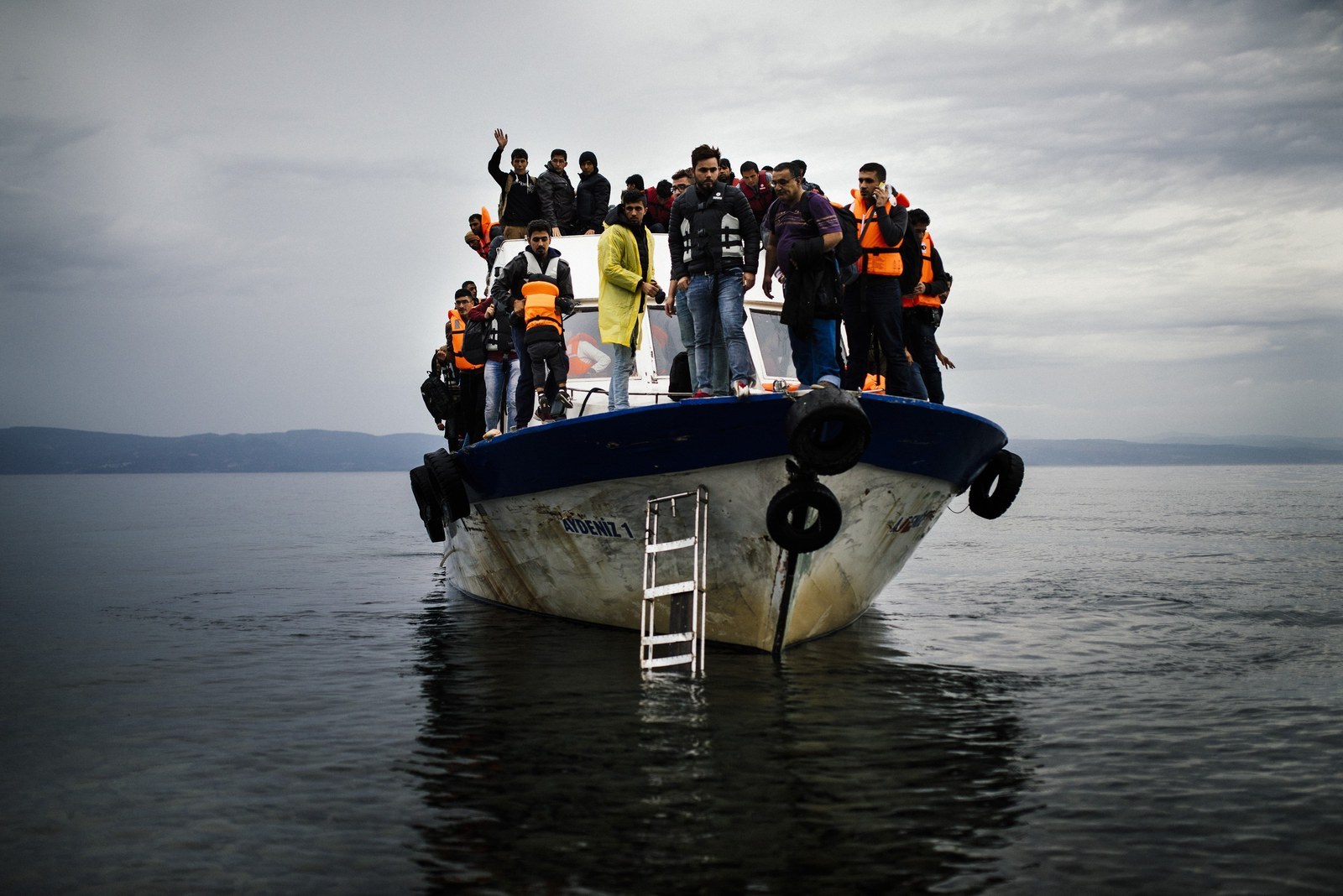
Back in February, before the swell of hundreds of thousands of refugees into Europe made global news and overwhelmed the continent's leaders, there were already signs of the influx of humanity that was to come. Months before the weather warmed, the Mediterranean seas calmed, and the "season" of migrant crossing began in earnest, more than 100 people had to be rescued from their rickety vessel by the Italian coast guard.
After voyaging from Libya and using a satellite phone to call for help, they were herded onto two ships that were not equipped for passengers. Amid high seas and icy winds, as waves splashed on board, they spent some 18 hours on the ships' decks while being transported to dry land. Some 29 people didn't survive the journey, freezing to death from hypothermia.
Despite the horrific conditions that come with a winter crossing, refugee advocates told BuzzFeed News they fear the momentum from the summer's unprecedented surge of migrants into Europe will continue into the Northern Hemisphere's colder months, a season that has in the past seen fewer arrivals.
"I don't think they'll stop coming," Carolyn Miles, president and chief executive of Save the Children, told BuzzFeed News on Monday, a day after returning from a trip to the Greek island of Lesbos, where 160,000 arrived in September alone, according to the U.N. Refugee Agency.
"I was there when the weather was frankly pretty good," Miles said. "It was relatively warm, if not a little chilly in the morning. But just imagining what it will be like in a month or so when the weather turns and the seas pick up is horrifying."
More than 550,000 people have arrived by sea into Europe this year, according to the International Organization for Migration (IOM). Almost 3,000 people died on the journey.
Advocates say they're troubled that the number of arrivals is showing no signs of declining. In fact, in some areas the numbers are actually increasing despite the changing weather, which can bring colder temperatures, more rain, and choppier seas. In the first week of October, the IOM documented some 7,000 people arriving each day on Lesbos, compared to 4,500 per day at the end of September.
Refugees may be seeking to make the journey before winter truly sets in, but Miles said she fears the summer's unprecedented surge will sweep into winter, too. "I think people are afraid they won't get through if they don't go now, and there is momentum," she said.

Joel Millman, an IOM spokesperson, told BuzzFeed News his group has been stunned by the surge in arrivals. "We never thought we'd see 42,000 in 2013, then 167,000 in 2014, and now 550,000 this year — and we've still got two and a half months left," he said.
Millman said he fears the changing conditions won't slow the tide: "It's going to be darker for more hours of the day, it's going to be colder and wetter, but we know these smugglers have shown very little care in the safety of their passengers."
"Logically you would say migrants would stay away from this dangerous crossing but we know they don't often have a say. Sometimes, they're shoved at gunpoint onto these ships," Millman said. "What rational people would say is unsafe may not be enough to stop you if you're a refugee."
The changing season will also threaten the lives of people who have already made it to Europe and are heading en masse to Germany and the Scandinavian countries that are seen to be more receptive to claims of asylum. Many arrived on the continent from the Middle East with only the clothes on their backs and are ill-prepared for a European winter.
"Certainly every winter is a dreaded winter when you're a refugee," Michael Bowers, vice president of humanitarian leadership and response for Mercy Corps, told BuzzFeed News. "Most individuals we've encountered are coming from warmer climates. They won't necessarily have a thicker jacket or winterized boots. We're equipping them as best we can."
The larger debate in Europe over how many refugees each country should resettle in the long term can at times overshadow more pressing short-term needs such as where to shelter migrants in the winter while their claims for asylum are processed, Bowers said.
"I don't think we'd be ringing the alarm bells the way we are now if the need wasn't pressing," he said.

Money may also prove an important factor in the continued migration in winter, with the price some people smugglers charge for the Turkey-to-Lesbos crossing already dropping to as low as $1,000 per person from a high of $1,700, according to Save the Children. "We've heard that some families on the other side [in Turkey] are waiting for the price to get better, so there's an incentive there," said Carolyn Miles, the group's president.
The passage between Turkey and Lesbos can be buffeted by high winds that whip up the seas and cause strong currents, Miles said. With many boats leaving at nighttime to evade the Turkish coast guard's efforts to turn them around, the journey can often turn deadly.
Despite these hazards, though, Miles said she doesn't expect the winter conditions to dampen some refugees' desires to reach European shores. "I think they're just so desperate at this point to to keep going," she said.
